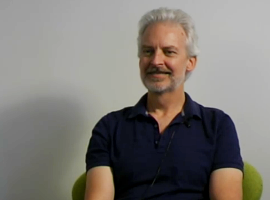InfoQ Homepage Architecture Content on InfoQ
-
Bryan Beecham on XP Not Dead
Bryan Beecham (aka Billy Garnet) reminds us that "XP not dead!" and shares his approach to teaching TDD and refactoring with Lego and applying XP and craftsmanship in teams as well as the human body.

-
Francesco Cesarini and Viktor Klang on the Reactive Manifesto
Francesco Cesarini and Viktor Klang explain the motivation behind the Reactive Manifesto and what exactly it brings to the table. Also: what Erlang and Scala/Akka can learn from each other.

-
Cliff Click on In-Memory Processing, 0xdata H20, Efficient Low Latency Java and GCs
Cliff Click explains 0xdata's H20, a clustering and in-memory math and statistics solution (available for Hadoop and standalone), writing H20's memory representation and compression in Java, low latency Java vs GCs, and much more.

-
Ola Ellnestam on The Mikado Method, Win-Win Conversations and Agile in Northern Europe
Ola Ellnestam talks about the Mikado Method for large scale refactoring of legacy systems, his talk at the Agile 2013 conference on Win-Win Conversations and the Agile community in Northern Europe

-
Dean Wampler on Scalding, NoSQL, Scala, Functional Programming and Big Data
Dean Wampler explains Scalding and the other Hadoop support libraries, the return of SQL, how (big) data is the killer application for functional programming, Java 8 vs Scala, and much more.

-
Crista Lopes on Constraints and Styles of Programming
Crista Lopes discusses the idea of using constraints to define styles of programming and architecture. Also: large scale static analysis of open source code, Open Simulator and VR, and much more.

-
Martin Thompson Discusses Reactive System Design
Martin Thompson discusses the buidling of complex systems with regards to the Reactive Manifesto. Many web-based systems are built in a synchronous manner and that way of development may be their greatest barrier to scale and could greatly limit their production lifespan. Martin discusses these shortcomings and gives some advice on how to make systems truly reactive.

-
Content Security Policy with Mike West
The Content Security Policy specification is a mechanism web applications can use to mitigate a broad class of content injection vulnerabilities, such as cross-site scripting (XSS). Content Security Policy is a declarative policy that lets web developers inform the client about the sources from which the application expects to load resources.

-
Eva Andreasson on Hadoop, the Hadoop Ecosystem, Impala
Eva Andreasson explains the various Hadoop technologies and how they interact, real-time queries with Impala, the Hadoop ecosystem including Hue, Oozie, YARN, and much more.

-
Victor Grazi on Java, Process and being a Java Champion
Victor Grazi talks to InfoQ about his popular tutorial application Java Concurrent Animated, and other things on his mind including Java, the financial industry, software development lifecycle, and being a Java Champion.

-
Sadek Drobi on Functional Programming and the Web, Fixing CMS with prismic.io
Sadek Drobi explains the benefits of functional programming for the web. Also: improving CMS by separating content from representation and how prismic.io implements ideas from functional DBs and Git.

-
Lachlan Heasman and Bernd Schiffer on Agile Coaching
Lachlan Heasman and Bernd Schiffer talk about Agile Coaching and how to define it and the skills required as well as their experiences along the way including Scrum PLoP, 42 things and Agile meetups.
